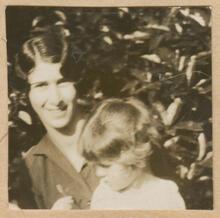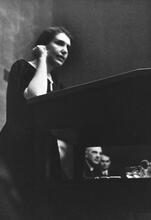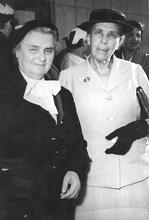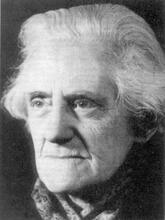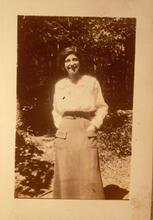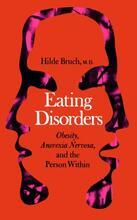Elisabeth Rozetta Geleerd
Elizabeth Rozetta Geleerd’s work on extreme psychological conditions such as amnesia and schizophrenia led to new methods for treating seriously disturbed children and adolescents. After losing her mother and brother to tuberculosis, Geleerd studied medicine and earned an M.D. from the University of Leyden in 1936 before training at the Vienna Psychoanalytic Institute under Anna Freud. She later opened a private practice in New York and became a training analyst and a member of the educational committee of the New York Psychoanalytic Institute in 1947, helping shape its child and adolescent analysis program. She wrote extensively on the psychodynamics of schizophrenia, amnesia, and fugue states in young people, offering new techniques in the treatment of traumatized and severely disturbed children and adolescents.
Early Life & Family
It is noteworthy that many early women psychoanalysts from Jewish backgrounds were strongly encouraged by their fathers to pursue their professional aspirations. Elisabeth Rozetta Geleerd, who became a supervisor of several generations of child and adolescent analysts, is a case in point.
Elisabeth R. Geleerd was born on March 20, 1909, in the Netherlands to Moses and Bertha (Haas) Geleerd. The eldest of three children, she and her two younger brothers, Yap and Benedictus, grew up in comfortable circumstances in Rotterdam, where her father’s business was outfitting ships. When she was nine or ten years old, her mother died of tuberculosis and she was sent to live with an aunt and uncle. This was not a positive experience, so she returned to live with her father in her early teens. Several years later, Yap died of tuberculosis. The deaths of her mother and brother influenced Geleerd’s decision to study medicine at the University of Leyden. Her father supported her ambition to become a physician.
Medical Degree & Training
After receiving her M.D. in 1936, she moved to Vienna in order to undertake psychoanalytic training at the Vienna Psychoanalytic Institute, where her analyst was Anna Freud. In 1938, the deteriorating political situation led her to move to London, where she completed her analytic training at the Institute for Psychoanalysis, the training school of the British Psychoanalytic Society. In 1940, she arrived in the United States and worked for several years at the Menninger Clinic in Topeka, Kansas, before finally settling in New York in 1946. That same year she married the prominent psychoanalyst Rudolph M. Loewenstein. They had one son, Richard, who became a psychiatrist.
The New York Psychoanalytic Institute
In 1947, Geleerd was appointed a training analyst at the New York Psychoanalytic Institute and, as a member of the educational committee, played a formative role in the development of the child and adolescent analysis program at the institute. Recollections of Geleerd invariably note her sensitive and searching temperament. She was by all accounts an empathic therapist, but her approach to patients was based on a thorough grasp of psychoanalytic theory and technique. In a series of papers on the psychodynamics of childhood schizophrenia, the developmental vicissitudes of adolescence, and the psychological states of fugue and amnesia, she delineated the defenses the ego utilizes in its attempt to deal with early, often overwhelming trauma originating in the mother-child relationship. She also sought to suggest new techniques for treating seriously disturbed children and adolescents.
Geleerd’s father was an atheist, and her own relationship to Judaism as a religion and cultural tradition is unknown. Certainly the outward course of her life was deeply influenced by her Jewishness, because it is doubtful she would have immigrated to the United States without the Nazi persecution of the European Jewish community. Her adopted country was immeasurably enriched by her contributions as a teacher, writer, and supervisor of other analysts.
Elisabeth Rozetta Geleerd died on May 25, 1969, in New York City.
Selected Works by Elisabeth Rozetta Geleerd
“Borderline States in Childhood and Adolescence.” Psychoanalytic Study of the Child 13 (1958): 279–295.
“Child Analysis: Research, Treatment and Prophylaxis.” Journal of the American Psychoanalytic Association 12 (1964): 242–258.
The Child Analyst at Work. New York: International Universities Press, 1967.
“Contribution to the Study of Amnesia and Allied Conditions,” with F.J. Hacker and D. Rapaport. The Psychoanalytic Quarterly 14 (1945): 199–220.
“Evaluation of Melanie Klein’s ‘Narrative of a Child Analysis.’” International Journal of Psychoanalysis 44 (1963): 493–506.
“The Psychoanalysis of a Psychotic Child.” Psychoanalytic Study of the Child 3/4 (1949): 311–332.
“Some Aspects of Ego Vicissitudes in Adolescence.” Journal of the American Psychoanalytic Association 9 (1961): 394–405.
Kabcenell, Robert. “Eulogy for Elisabeth Geleerd.” Unpublished. A.A. Brill Library, New York Psychoanalytic Institute, NYC.
Loewenstein, Richard J. Personal communication, 1996.
Stein, Martin. “Tribute to Elisabeth Geleerd Loewenstein.” Unpublished. A.A. Brill Library, New York Psychoanalytic Institute, NYC.
Tartakoff, Helen. “Obituary—Elisabeth Geleerd Loewenstein.” International Journal of Psychoanalysis 51 (1970): 71–73.
Who’s Who of American Women. Berkeley Heights: Marquis Who’s Who, 1968–1969.
WWWIA 5.

